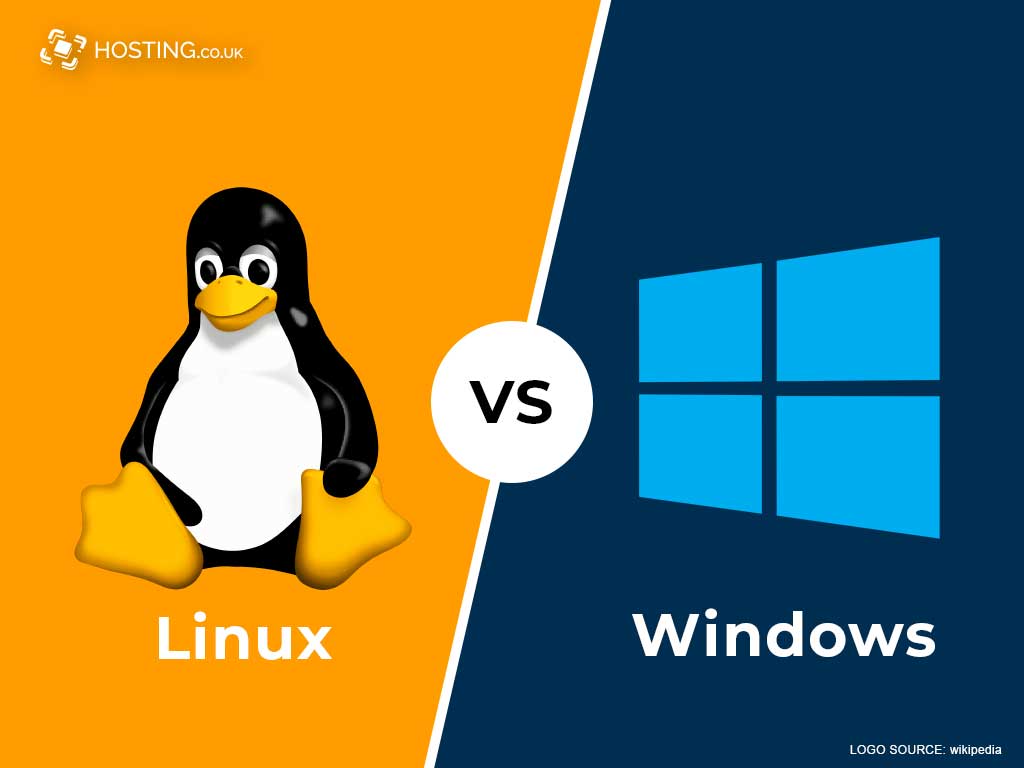Deciding between apples and oranges on a warm day may be an easy choice. Or is it? Well here we are in another quandary trying to figure out which is better. You may have the same challenge when deciding on which Operating System (OS) to use for your business: Linux vs Windows. Which is more compatible with your web host and which OS may cause a restriction on the apps you run?
Many questions need an answer. Choosing between Linux vs Windows will ultimately determine how fast your service is and consequently impact your bounce rate. Linux vs Windows, the two popular choices for businesses, are available to all and when deciding on which to choose for your business, you may need a little help. So let’s do just that.
Table of Contents
Windows OS

Microsoft and their many products have a notable track record when it comes on to software-related decisions.
Windows OS has over 70 % of the market share.
They currently provide many options for servers: Windows Server 2008, 2012, 2016 and 2019. With Microsoft, an added plus straight out of the blocks is Remote Access. The OS allows users with the option of connecting to their desktops remotely in order to run software without having to burden their PCs.
How long will you run the OS?
When deciding between Linux vs Windows, one key consideration is the duration of their runtime. Many versions of the Windows OS server end their support after a while.
For instance the 2008 Windows OS ended its mainstream support in 2015.
So here, a clear indicator is to get the latest version.
What does this mean for your hardware? This means that the possibility of your product support is more likely to end before you get a chance to upgrade your hardware. The use of an OS beyond its set time is not recommended. Doing so may attract a number of security risks because Windows updates are no longer available.
Let’s talk Cost Factors
With most decisions in life, cost plays an integral role. The Linux and Windows comparison is no exception. License fees can be rather expensive and additionally, with a large workforce, the price goes up. With that said, you may look into older versions of the OS however, again you run the risk of support shelf life. The cost factor will have to be considered greatly when deciding on Linux vs Windows for your business.
What you need to know about Linux
Having the record for being installed on over 90% of supercomputers around the world, Linux demonstrates that it is the faster of the two OS while utilizing a small resource.
Linux however, is what is considered as a kernel, not a complete OS of itself. What this means is that Linux needs supplementary software as a bundle. The different bundles (distributions) have different types such as Ubuntu, Red Hat and SUSE.
Cost Factors
In the Linux and Windows comparison, Linux takes the edge here. The OS is free for download and additionally, one can modify their version and even re-distribute it without incurring any costs. The open-source nature of the OS allows that flexibility.
For the enterprise market, SUSE is a preferred choice. An added bonus is that the platform accommodates configuration so a user can modify as many times as possible according to their need. Additionally, it is being used by the London Stock Exchange (LSE) and many universities to carry out key operating functions.
What is the marketing appeal?

A key marketing component of the Linux OS is that they offer many Microsoft product alternatives for free. A platform such as Microsoft Exchange has its own Linux alternative along with many other Microsoft products you would have to pay for.
What about compatibility?
Say hello to compatibility. If you already have experience with working on a Microsoft OS and you wish to move to Linux easily, SUSE is compatible with Active Directory, Sharepoint and Novell.
Over the years, Linux has gain popularity and has increased its usage with the business world with many business-owners deciding to switch for one reason or the other. One downside to Linux though is that it will take a learning curve if you are not an administrator with knowledge on how to modify and adequately run/support the system for optimal use.
Final Thoughts
In deciding on Linux vs Windows for your business, you have to realize that the chief reason for doing this is that you wish to better the health, profitability and longevity of your business. It would be helpful to first have a test run of both OS platforms and carry out the major functions you intend to use for your business. This could be over a week or so and grading your results is recommended.
When carrying out the Linux and Windows comparison in a test-run phase, pay close attention to issues relating to security and performance. These are two key parameters that will contribute to the success of your business. If you are not that tech savvy, you may need to employ the service of a trained professional or commit to watching a bunch of YouTube videos. Many persons do consider YouTube a university in and of itself.
Depending on which pleases you the most, keep exploring the benefits and maximise the key strengths of the OS to yield the most lucrative rewards. For more on choosing operating systems go here. Ready to make your choice? Get your dedicated server with your choice of Linux or Windows OS at the affordable rates on Hosting.co.uk.
